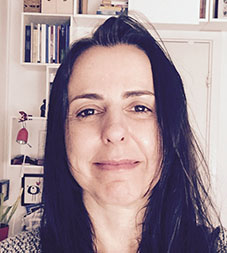How stories about pasts and futures can inform planning processes
In her dissertation, Luciane Borges studies the advantages of promoting a dialogue between future studies and heritage studies.

What is your dissertation about?
My research adapts an interdisciplinary approach that links three main fields of inquiry: heritage studies, future studies and planning. I see planning as an arena in which multiple stories struggle to become heard and get attention, or to silence others. Through these struggles, diverse actors and institutions compete in the reconstruction and projection of the authorized stories about “our” valuable pasts and “our” desirable futures. Following these lines of thoughts, the aim of my research is to investigate these struggles within planning and thereby open critical discussions on how stories about pasts and futures can inform, but also be sustained by, planning processes.
What made you interested in the topic?
I was initially motivated by the contemporary debate about the changing roles of the regions in the global economy. While exploring this subject I realized the powerful role heritage plays in strategies for regional development. My interest in the heritage-futures relationship strengthen during the creative and inspiring task of creating ICT futures for Sweden in 2060 within the project ‘Scenarios and Impacts’ (2013-2015).
Which results are the most important?
An overall finding showed that conflicts between regional planning and heritage management are often “resolved” through a traditional divide between past and future. In this respect, the process of developing scenarios on the project ‘Scenarios and Impacts’ was insightful uncovering some of the advantages of promoting a dialogue between futures studies and heritage studies. The use of future scenarios could contribute to a progressive approach for heritage management, that would endeavour for the conservation of pasts not based in today's evaluation about what is worth preserving for the future, but instead based on how societies could look in the future.
Who will benefit from your results?
My audience can include academics, practitioners and policy makers who are interested in issues related to planning, heritage and future studies within the context of regional development. By understanding pasts, presents and futures as plural, uncertain and intertwined my research advocates the need to involve a wider landscape of actors in planning processes in order to have a more transparent, inclusive and democratic planning practices.
What do you plan to do next?
I hope keeping researching on the interrelations between futures studies, heritage studies and planning. I have found enjoyable studying interfaces between these fields, which seems to be a promising avenue that might lead to more just and inclusive futures.
